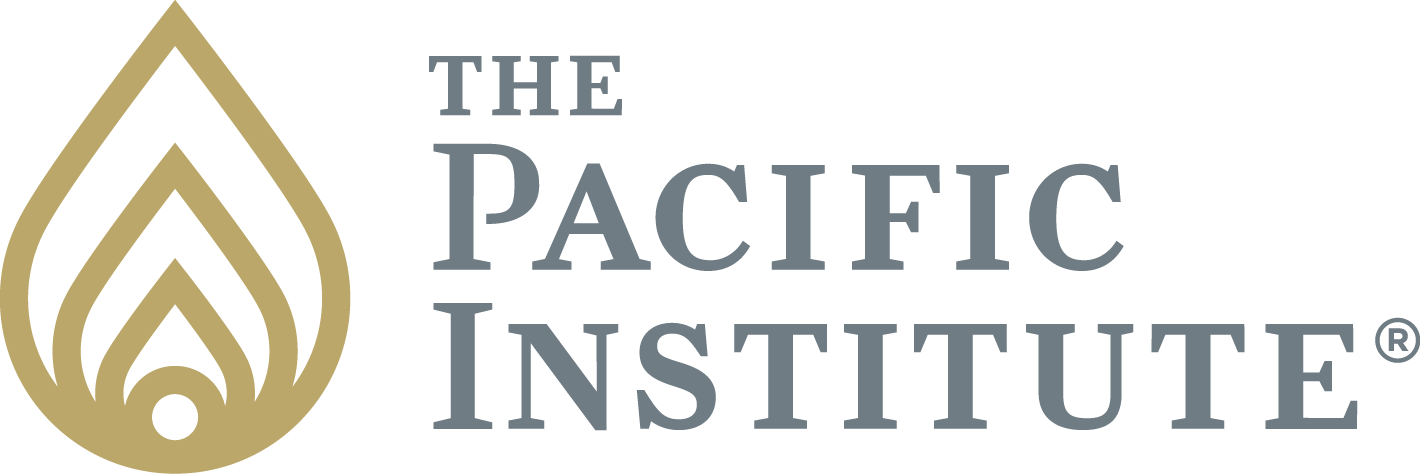Leadership Coach Fundamentals
Written by Richard Resnick
| April 8, 2025

When people hear the word “coach,” they often think of a sports coach on the sidelines, shouting advice and celebrating wins. In many ways, a leadership coach serves the same role for business leaders.
Leadership coaches guide executives and managers through structured sessions that provide practical, actionable insights they can apply to real-world challenges. Then, like sports coaches, they step back and watch as those leaders translate new skills into measurable wins for their teams and organizations.
A leadership coach can be a transformative resource for individuals and companies across industries. Here’s a closer look at what leadership coaches do, how they differ from mentors, and why working with one — especially through The Pacific Institute — can lead to lasting cultural and organizational change.
Download the eBook — Lessons from Leadership Coaching: What you Don’t Know Can Hurt You
What Do Leadership Coaches Do, and How Do They Help Leaders Succeed?
A leadership coach helps leaders improve performance by developing critical skills such as communication, decision-making, and emotional intelligence.
These are all essential ingredients that help make an individual an effective, trusted authority figure — an absolute must for the retention and success of the teams they’re guiding. In fact, half of employees under ineffective leaders plan to leave their jobs in the next year, while only 34 percent are motivated to do a good job, according to a UK study.
Beyond skill development, leadership coaches provide structured, hands-on guidance that helps executives and managers lead with confidence. At The Pacific Institute, coaches focus on more than surface-level techniques. They help clients cultivate a leadership mindset that drives lasting behavioral change.
Through assessments, workshops, and small group sessions, a leadership coach identifies each person’s strengths, challenges, and limiting beliefs. The goal is transformation: to help leaders think differently, embrace challenges, develop learning and growth mentalities, build resilience and adaptability, and lead with purpose — improvements that ripple throughout the entire organization.
Coaching vs Mentoring: The Difference in Leadership Growth
The main difference separating coaching vs mentoring is structure and focus. Coaching is short-term, goal-oriented, and results-driven, while mentoring is longer-term, relationship-based, and focused on shared experiences.
A leadership coach works within a defined framework over a few weeks to several months, setting measurable objectives and using proven strategies to help leaders improve specific skills. Mentors, on the other hand, typically offer informal advice and career guidance based on personal experience. While mentors often volunteer their time, coaches are paid and trained professionals.
Both approaches have value, but coaching offers measurable ROI. Leadership coaches use structured programs built on research and mindset science to ensure every session moves leaders toward clear, actionable goals.
Are Coaches Necessary for Teaching Leadership?
Yes. A leadership coach is essential for turning leadership theory into effective practice. Self-guided learning can provide information, but coaching ensures accountability, skill application, and long-term change.
Through customized coaching engagements, leaders receive feedback tailored to their specific goals, communication styles, and organizational culture. This individual attention is what makes coaching transformative.
The Pacific Institute’s coaches use proven methods to help clients internalize new behaviors, reinforcing a leadership mindset that supports continuous growth and adaptability.
What’s Involved in a Leadership Coaching Engagement?
A leadership coaching engagement typically begins with an in-depth discovery phase where the coach assesses the client’s current leadership style(s), challenges, and goals.
From there, structured sessions are tailored to the client’s unique needs. Using presentations, breakout discussions, full-team conversations, and roleplaying, they focus on achieving targeted outcomes, like improving emotional intelligence, communication, or strategic thinking. Throughout the process, leaders receive practical tools, guided reflection, and accountability check-ins to ensure progress.
Data-driven assessments are used to track results and measure ROI, ensuring that coaching investments translate into stronger leaders and healthier organizations over the long term.
What Are the Benefits of a Leadership Coach?
The benefits of a leadership coach extend well beyond improved skills. Coaching helps leaders become more confident, emotionally intelligent, and effective — leading to stronger relationships, clearer communication, and higher-performing teams.
These gains often reach entire organizations. One industry survey found that leadership coaching increased employee engagement and satisfaction for 67% of respondents and improved employees’ perception of their leaders by 60%.
Perhaps the greatest advantage of leadership coaching, however, is mindset transformation. A skilled coach helps leaders replace limiting beliefs with empowering ones, cultivating a leadership mindset that fosters vision, collaboration, resilience, and creativity.
Some of these outcomes can also be achieved through mentoring, but when comparing coaching vs mentoring, coaching consistently proves more impactful. The systematic curriculum and expert training that leadership coaches bring ensure a focused, goal-driven, and measurable approach. At The Pacific Institute, leadership coaching programs integrate mindset science with practical strategy to help leaders achieve lasting personal and organizational growth.
Choosing the Right Leadership Coach
The right leadership coach focuses on both skills and mindset. Many programs address behavior change but overlook the internal beliefs driving those behaviors, which limits long-term impact.
That’s why The Pacific Institute takes a mindset-first approach to leadership coaching. By helping leaders reframe their thinking, coaches empower them to achieve meaningful transformation that endures well beyond the coaching engagement.
Partnering with coaches who emphasize development of a sound leadership mindset ensures leaders not only perform better but think better: a crucial distinction in today’s fast-changing business environment.
Contact The Pacific Institute to learn how our leadership coaches can help your senior team build a strong, sustainable leadership mindset that drives long-term success.






